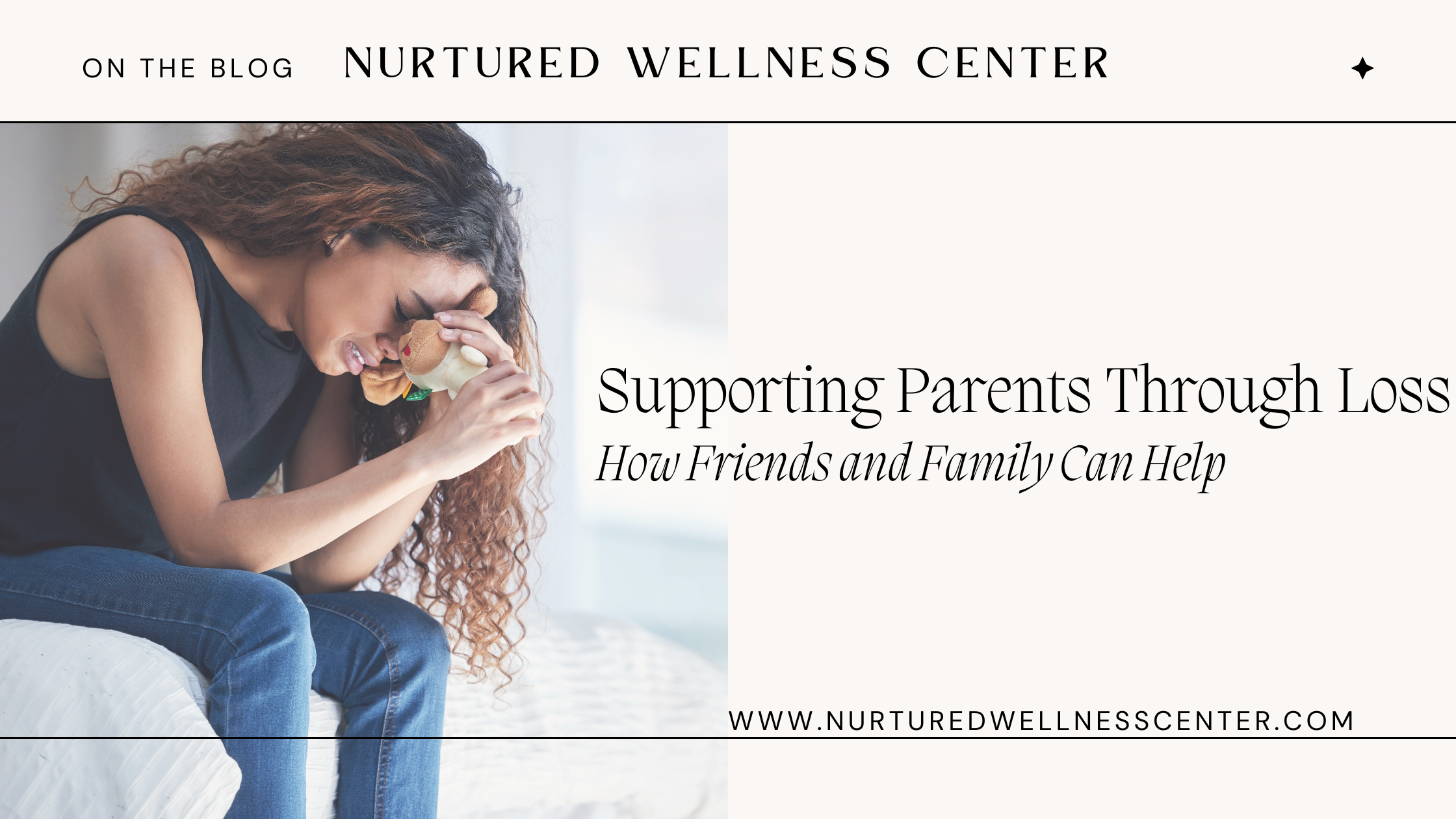Supporting Parents Through Loss: How Friends and Family Can Help
When a family experiences the unimaginable heartbreak of losing a child — through miscarriage, stillbirth, infant loss, or child loss — the grieving process can be isolating, overwhelming, and uniquely painful. Many friends and family members deeply want to help but often struggle to know what to say or do. Here are some meaningful ways you can support grieving parents as they navigate their profound loss.
1. Acknowledge the Loss
One of the most painful experiences for grieving parents can be feeling as though their baby’s life has been minimized or forgotten. Friends and family might shy away from discussing the loss, fearing they’ll cause more hurt. But acknowledging the baby’s life and the grief the parents feel is critical. A simple acknowledgment, like, “I’m so sorry for your loss,” or “I can’t imagine the pain you’re feeling,” can be a lifeline to parents. Saying the baby’s name, if they had one, is also a powerful way to honor them.
2. Let the Parents Lead
Grieving parents may have different needs depending on their individual process, their baby’s gestation or age, and their unique circumstances. Some parents may want to talk about their child, while others may prefer silence. Follow their cues, and remember that there is no right or wrong way to grieve. Gently check in and ask, “Would you like to talk about it?” or “How are you feeling today?” This approach allows parents to express their grief without feeling pressured to engage in ways they’re not comfortable with.
3. Offer Practical Support
Grief can make everyday tasks feel insurmountable. Friends and family can help by taking on some of the responsibilities parents may struggle to manage during this time. Offering to bring meals, help with household chores, or take care of other children can provide real, tangible relief. Instead of saying, “Let me know if you need anything,” which puts the burden of asking on grieving parents, try offering specific help: “I’d love to bring you dinner on Thursday. Is there anything special you’d like?”
Small gestures, like dropping off a self-care package or simply checking in periodically, can remind parents they aren’t alone. Practical support isn’t only limited to the initial period after the loss; parents may need help for weeks, months, or even longer as they continue to grieve.
4. Listen Without Judgment
The grief of losing a child brings complex emotions: sadness, anger, guilt, and regret, among others. When parents share their feelings, listen openly and without judgment. Avoid trying to fix their pain or tell them how to grieve. Instead, validate their experience by saying, “It’s okay to feel that way,” or “Whatever you’re feeling is completely understandable.” Offer a listening ear without interjecting personal opinions or advice unless they specifically ask for it.
5. Respect Their Grieving Timeline
Grief doesn’t have a timeline, and parents may feel the weight of their loss for a lifetime. Birthdays, due dates, anniversaries, and holidays can be especially difficult. Even long after the loss, simple messages like, “Thinking of you today,” can mean so much to parents. Don’t assume that because time has passed, they are “over it” or have “moved on.” Continue to support them in ways that respect their individual process and acknowledge that they may experience waves of grief indefinitely.
6. Avoid Clichés and “Fix-It” Language
Friends and family may mean well by offering hopeful or positive comments, but many clichés and well-intentioned statements can feel dismissive to grieving parents. Phrases like, “Everything happens for a reason,” “At least they didn’t suffer,” or “You can always try again,” can be incredibly painful and invalidate the loss. Instead, focus on empathizing with their experience, even if you don’t understand it fully. Simple phrases like, “I’m here for you,” or “I can’t imagine how hard this must be for you,” show care and support without minimizing their pain.
7. Remember the Baby
Many parents fear their child will be forgotten, so continuing to honor the baby’s memory can provide enormous comfort. Consider marking important dates, such as the baby’s birthday or anniversary, by sending a card, flowers, or a simple message to let the parents know you’re remembering them and their child. Gestures like lighting a candle, donating in the baby’s name, or creating a small memory keepsake show parents that their child was loved and that their loss matters.
8. Be Prepared for Changes in Your Relationship
Grief can shift the dynamics of relationships, especially as parents grapple with the emotional fallout of their loss. Some parents may withdraw, while others may need more support. Understand that grieving parents might not always respond in the ways you’re accustomed to, and be patient with these changes. Give them space if they need it, but don’t disappear. Offer steady, consistent support, even if from a distance.
9. Encourage Professional Support if Needed
While friends and family provide invaluable support, grieving parents may also benefit from speaking with a counselor or joining a support group specifically tailored to those who have experienced child loss. A gentle suggestion, such as, “If you ever want to talk to someone who specializes in this, I can help find resources,” can be comforting without pushing them in any direction.
10. Take Care of Yourself Too
Supporting someone through grief can be emotionally taxing, so remember to care for your own mental and emotional health. Seek out others who can support you as you walk alongside your grieving loved ones. The journey through grief is complex, and having your own support system will help you to provide sustained, compassionate support.
The loss of a child is an unimaginable tragedy, but with sensitive, compassionate support from friends and family, grieving parents can find some comfort in knowing they’re not alone. By acknowledging the loss, respecting the parents’ needs, offering practical help, and honoring the child’s memory, you can be a powerful source of support and love in a profoundly difficult time. In the face of loss, the presence and understanding of loved ones can bring immeasurable healing.


